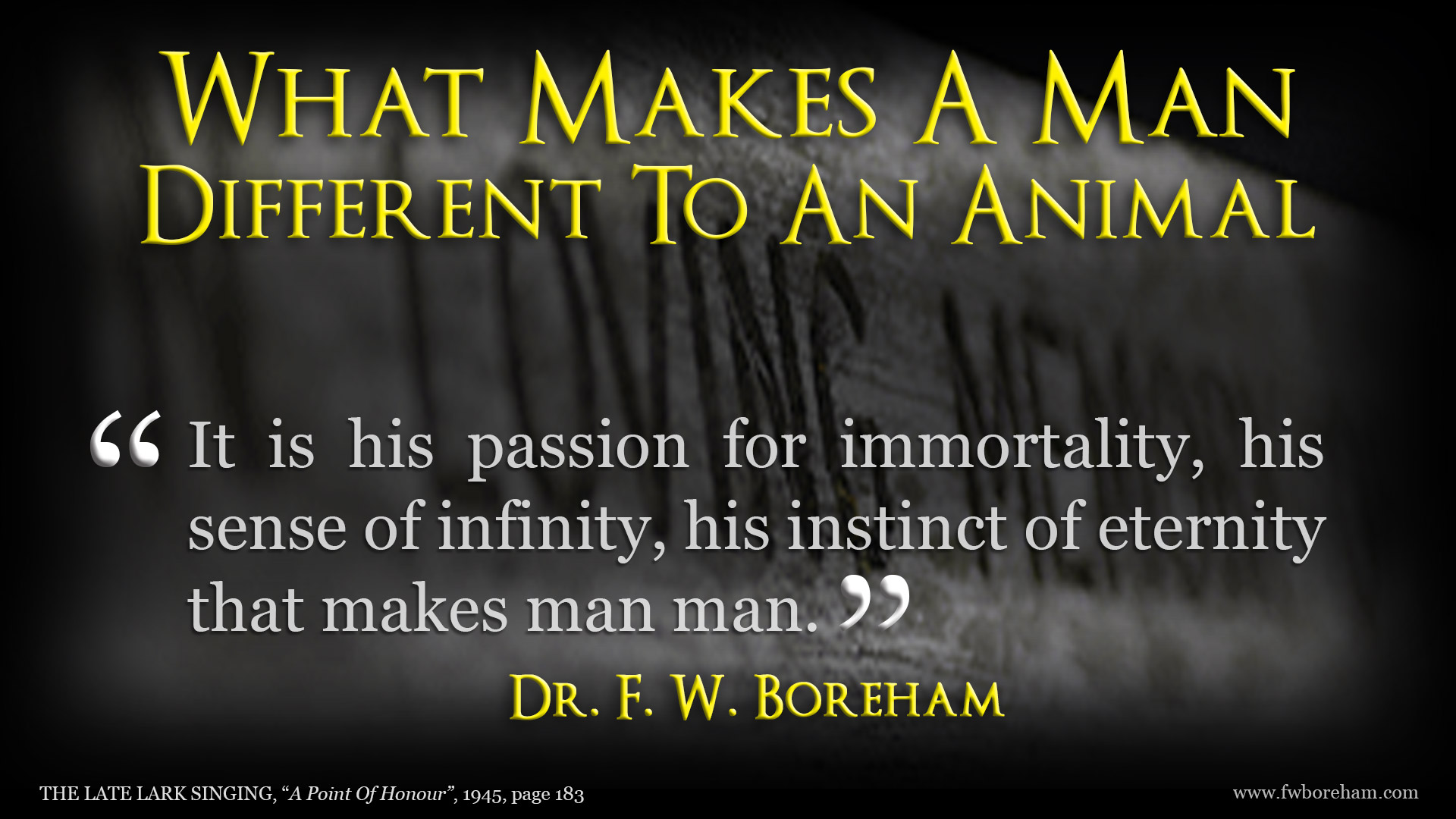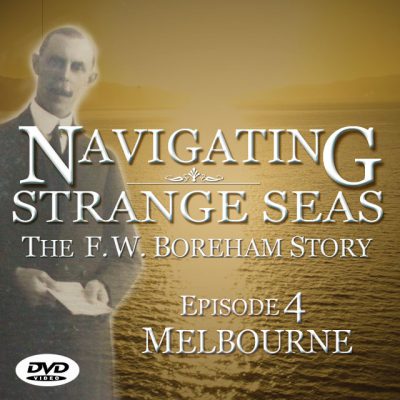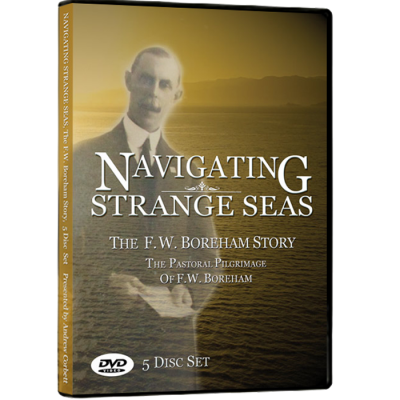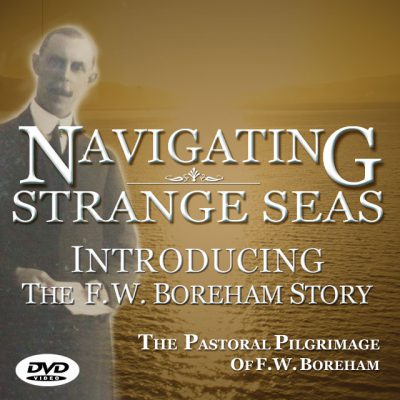home > books by fwb > 1945 A Late Lark Singing > A Point of Honour
Chapter VII
A Point of Honour
Is God under any obligation to give another life? The question is often asked. It is seldom answered. Probably for the simple reason that it almost answers itself.
If any work of God is left unfinished here, it is presumptive, if not conclusive, evidence that He intends to finish it hereafter. In many parts of the world-on Calton Hill, Edinburgh, for example — there are the stately columns of buildings that, assuming most magnificent proportions in the architect’s plans, were begun but never continued and therefore never completed. They stand as imposing and picturesque fragments. Is it conceivable that Almighty God will begin a beautiful painting, and, after a few preliminary touches, toss aside the brushes? Can anybody imagine that, sculptor-like, He will set out to woo an angel from the shapeless marble, and then, tiring of His work, forsake the studio? Would it be like Him to write the opening stanzas of one of His sublime poems and then drop the pen, leaving the noble song half-sung? I am the Alpha and the Omega, He says, again and again and again. The meaning is clear. He goes right through. What He commences, He completes. He is the Author and the Finisher. He that bath begun a good work, says Paul, will perform it unto the end. There are no frayed edges or loose ends in the divine handiwork. It follows, therefore, that if, in this life, some divine task is left half-finished, it is because the work will be brought to perfection in some other realm.
We’ll catch the broken threads again,
And finish what we here began;
Heaven will the mysteries explain,
And then, ah then, we’ll understand.
But for some such hope, the entire scheme of things, as we know it, would be unintelligible. In his famous Postscript, Victor Hugo said that, for fifty years, he had been writing history, philosophy, drama, romance, tradition, satire, ode, song. ‘I have tried them all,’ he says. ‘But’, he adds, ‘I feel that I have not said a thousandth part of what is in me. Why is my soul more luminous as my bodily powers begin to fail,’ The nearer I approach the end, the plainer I hear around me the immortal symphonies of the world to come. When I go down to my grave, I shall have finished one day’s work. But my life will not be finished. Another day will begin next morning.’ With still greater vehemence Browning makes Paracelsus cry:
Truly there needs another life to come!
If this be all- . . .
And other life await us not-for one
I say ’tis a poor cheat, a stupid bungle,
A wretched failure. I, for one, protest
Against it, and I hurl it back with scorn.
A cheat, mark you, a stupid bungle, a wretched failure! Is it possible to arraign Almighty God in such terms? There is only one way of escape. We avoid so blasphemous a conclusion by making up our minds that, in order to bring His work to an orderly culmination, God has placed Himself under an obligation to give another life.
I
He must continue His programme in some other realm in order to be true to Himself, Have we even yet entered into the poignant pathos of the opening chapters of the Bible? What do these majestic stanzas mean? They mean, if they mean anything, that God was lonely; terribly lonely; we should have been lonely, placed as He was placed. And He set Himself to make for Himself an intimate, a confidant, a mate. We feel, as we approach the record, that, having completed the brute creation, He is now venturing upon something entirely different, something infinitely more splendid, something really transcendent, He made man in His own image-godlike; like God; almost a god-and, we are told, walked with him in the cool of the day. It is an exquisite, a lover-like phrase. But is it conceivable that God would have created, for His own divine companionship, a mere animal, however intelligent, a thing whose breath was in its nostrils, a creature destined only for the grave? The very suggestion is abhorrent to us; the conception is repugnant: it grates upon our finer feelings.
Professor A.W. Momerie says that Pietro, the tyrannical Duke of Florence, in one of his capricious moods, compelled Michelangelo to mould a statue out of snow — a statue that the warmth of an Italian sun would dissolve within an hour or two. It was a wanton waste of the immortal master’s genius. Yet that, as Professor Momerie points out, is a mere trifle as compared with the prostitution of creative power represented by the making of men in so divine a mould, only to allow them to rot for ever in a tomb!
But we must go a step farther. When the Lord God formed the body of man from the dust of the ground, to be His consort, He made him in His own image. And not only so, but He breathed into his nostrils the breath of life — the very stuff and principle of life itself. And man became a living soul. The phraseology contrasts sharply and dramatically with that employed in the story of the making of the beasts. God breathed into man His very spirit, His very essence, His very self. And, having become a partaker of the divine nature, he can no more die than God Himself can perish.
Perhaps, therefore, we have erred in our statement of the question. Is God under any obligation to give another life? It is not a matter of one life and another life: this life and that life: the life here and the life yonder. It is a matter of life itself. God breathed into man’s nostrils the breath of life: and life is necessarily a deathless thing. As Tennyson sings in Locksley Hall:
. . . since our dying race began
Ever, ever and for ever was the leading light of man.
Truth for truth and good for good! The good, the true, the pure, the just;
Take the charm For Ever from them and they crumble into dust.
It is his passion for immortality, his sense of infinity, his instinct of eternity that makes man man.
II
God must continue His programme in some other realm in order to vindicate His own code of justice and honour.
God has inscribed that code of justice and honour, not only in external enactments, but in the very thought and tissue of the man whom He has made. When He made man in His own image, and breathed into his nostrils the breath of life, He invested him with His own passion for justice and honour. And, even after ages of degradation, that passion lives in him still.
His passion for Justice! Man is incorrigibly just. Will anything arouse a fiercer storm of protest than an obvious miscarriage of justice in our courts of law? A man may act unjustly; but, acting unjustly, he knows that he is acting unjustly; and the very fact that he knows that he is acting unjustly, proves that his sense of justice is fundamental whilst his act of injustice is anomalous, incongruous, and unnatural. I heard a lecturer in the park impeaching the justice of Almighty God. I could see at once that he had mis-understood Almighty God. But the thing that impressed me was the fact that, in the depths of his soul, this secularist carried the sense of justice that moved him to criticize his Maker! Man is incurably just!
His passion for Honour! And is not man fundamentally honourable? Then why is everybody indignant when a fickle lover repudiates the pledge that he gave to the girl who loved and trusted him? Why does the blood boil when a man, breaking his promise to a little child, leaves him broken-hearted? Why does even a racecourse crowd despise the man who repudiates his debts of honour? Man is incurably honourable.
But, as the Psalmist argues, He that formed the eye, shall He not see? A blind God could not have made a seeing world. By the same token, a deaf God could not have made a hearing world. And, carrying the principle to its logical conclusion, an unjust God could not have made a just world. Nor could a dishonourable God have created an honourable world. Clearly, therefore, the Creator of the Universe is the soul of honour, the fountain-head of justice. But His justice is not always apparent in this world. He must, therefore, be leaving some of His accounts to be settled hereafter.
Here, on my desk at this moment, are two of the best-known and most popular books in the language — Robinson Crusoe and Uncle Tom’s Cabin. Let us open them!
In later life, as everybody knows, Robinson Crusoe returned to the island on which he had once been a castaway, and again made if his home. He soon enjoyed the companionship of Will Atkins, a shipwrecked sailor, whom Crusoe succeeded in leading to the Saviour. In course of time, Atkins took as his mate a dusky maiden from one of the savage tribes that occasionally visited the island. He then became as eager for her conversion as Crusoe had been for his. But the task of winning her for his Lord was beset by difficulties. In magnifying the mercy that had transfigured his own life, Atkins had luridly described the life of shame that had preceded his conversion. This filled the dusky girl’s mind with a strange thought. If that be so, she objected, God cannot be a good God, or a just God, or a righteous God. For, if He loved goodness and hated evil-doing, He would have punished this rough-and-ready lover of hers by striking him down in the midst of his transgressions. This objection was too much for Atkins, who resorted to Crusoe for advice as to how the objection was to be answered.
‘Tell her’, replied Crusoe, ‘that our God is very merciful, of infinite goodness and long-suffering. He waits to be gracious, willing not the death of a single sinner, but rather that he should turn from his wickedness and live. He can afford to wait, reserving His punishments for a life beyond. Tell her that the patience of God is clear evidence of a future state, since righteous men receive not their reward, nor wicked men their punishment, in this world.’ So much for Robinson Crusoe; now for Uncle Tom’s Cabin.
It is just before Eliza’s escape across the broken ice to Canada — and freedom. Her husband is heartbroken at the thought of losing her; but, fearing that her love may one day bring her back to him—and to slavery—he sends word, by the good old Quaker, entreating her, if she once sets foot on Canadian soil, to stay there for their boy’s sake. ‘Tell her to bring up our boy a free man; for slavery, even under the kindest master, slavery means misery.’
‘Yes, George,’ replied the Quaker. ‘I’ll tell her. Trust in God, George; I wish that you, too, were safe!’
‘Trust in God!’ echoes George bitterly. ‘Is there a God to trust in? A God for you, perhaps; but no God for us!’
‘There is! There is!’ exclaimed the Quaker sympathetically. ‘Clouds and darkness are round about Him, but righteousness and judgement are the habitation of His throne! There is a God, George! Trust Him! He’ll help you! Everything will be set right – if not in this life, in another!’
‘Thank you for saying that,’ replied George reflectively, ‘thank you for saying that, my good friend; I’ll think of that!’
It is worth thinking of. In order to vindicate His own code of justice and honour, God is under an obligation to give another life.
III
God must continue His programme in some other realm in order to keep faith with the promise that He has made to men in this. There is nothing more universal than the sense of immortality. Men of every age and class and kind have felt the instinct of the eternal. To quote Tennyson’s lines again:
. . . since our dying race began
Ever, ever and for ever was the leading light of man.
Does not that constitute a promise? And does not its repudiation represent a breach of promise? If God has inculcated in the minds of a thousand separate tribes in a thousand separate generations, a confident expectation of immortality, He is under a solemn obligation to gratify the desire that He has Himself created.
And He will. There can be no doubt of that. Everything, in Scripture, in history, in scholarship, and in human nature points conclusively in that direction. But what then? ‘Man has for ever!’ Browning exclaims in the Grammarian’s Funeral. Man has for ever!
But what will he do with it? That is always the question. Life presents us at every turn with two problems-a minor problem and a major. The minor problem is: How to acquire? The major problem is: How to administer our acquisitions? It is comparatively easy to possess ourselves of money, learning, influence, power, fame, and a thousand other things. But a much more complex problem presents itself when we ask ourselves what we shall do with these things now that they are ours. And it is upon our solution of that major and ultimate problem, rather than on our solution of the minor and preliminary one, that destiny depends.
Man has for ever, Browning avers. What will he do with it now that it is his? That is the thing that matters. The New Testament differentiates sharply between everlasting existence, which is the lot of every man and which may be a thing of shame and misery, and everlasting life, which is the glory of those who follow the Son of God. For God so loved the world that He gave His only-begotten Son that whosoever believeth in Him should not perish but have everlasting life. The wise man, conscious of his own immortality, and anxious to make the best of it, will lay himself in contrition and in consecration at the Saviour’s feet that his everlasting soul may be purged of every defilement already contracted, and be made, by the divine grace, a thing of beauty and a joy for ever.
-F.W. Boreham

-

NAVIGATING STRANGE SEAS, The Dr. F.W. Boreham Story, Episode 1 – England (DVD)
$7.95 -

NAVIGATING STRANGE SEAS, The Dr. F.W. Boreham Story, Episode 2 – New Zealand (DVD)
$7.95 -

NAVIGATING STRANGE SEAS, The Dr. F.W. Boreham Story, Episode 4 – Melbourne (DVD)
$7.95 -

NAVIGATING STRANGE SEAS, The Pastoral Pilgrimage of Dr. F. W. Boreham – Blu ray Disc
$9.95





0 Comments